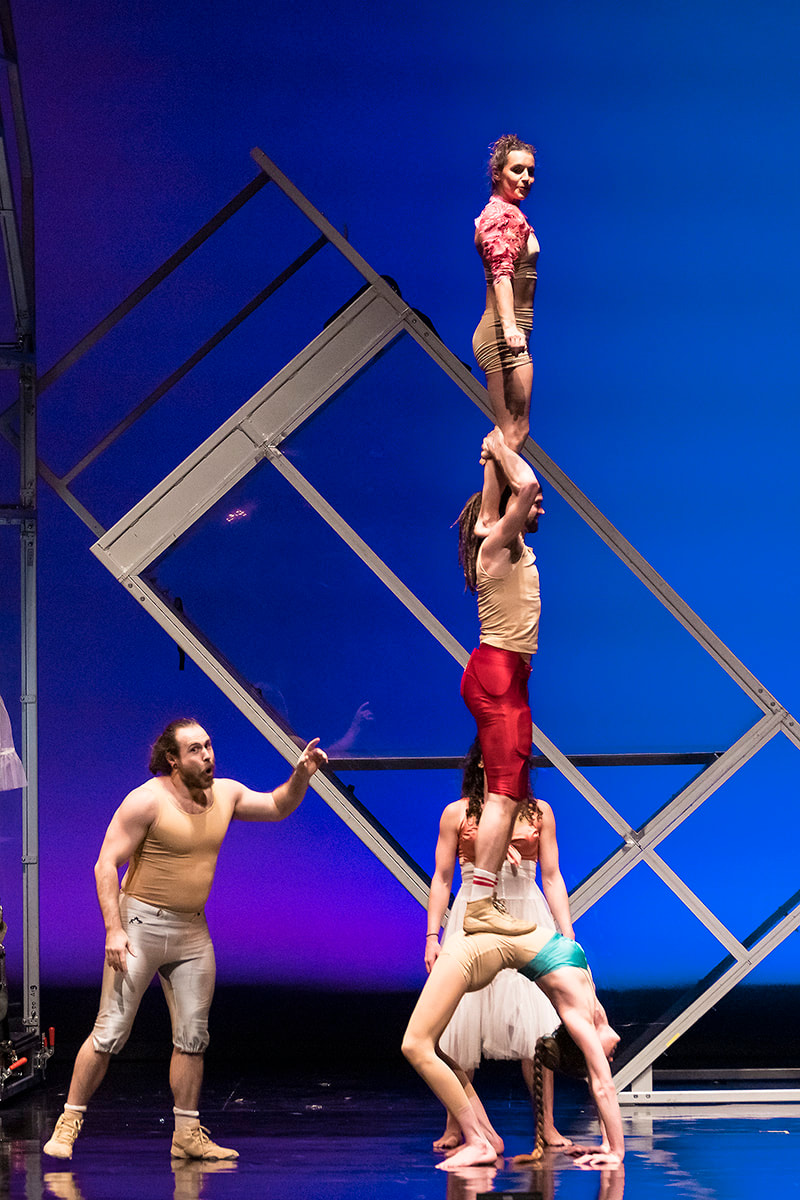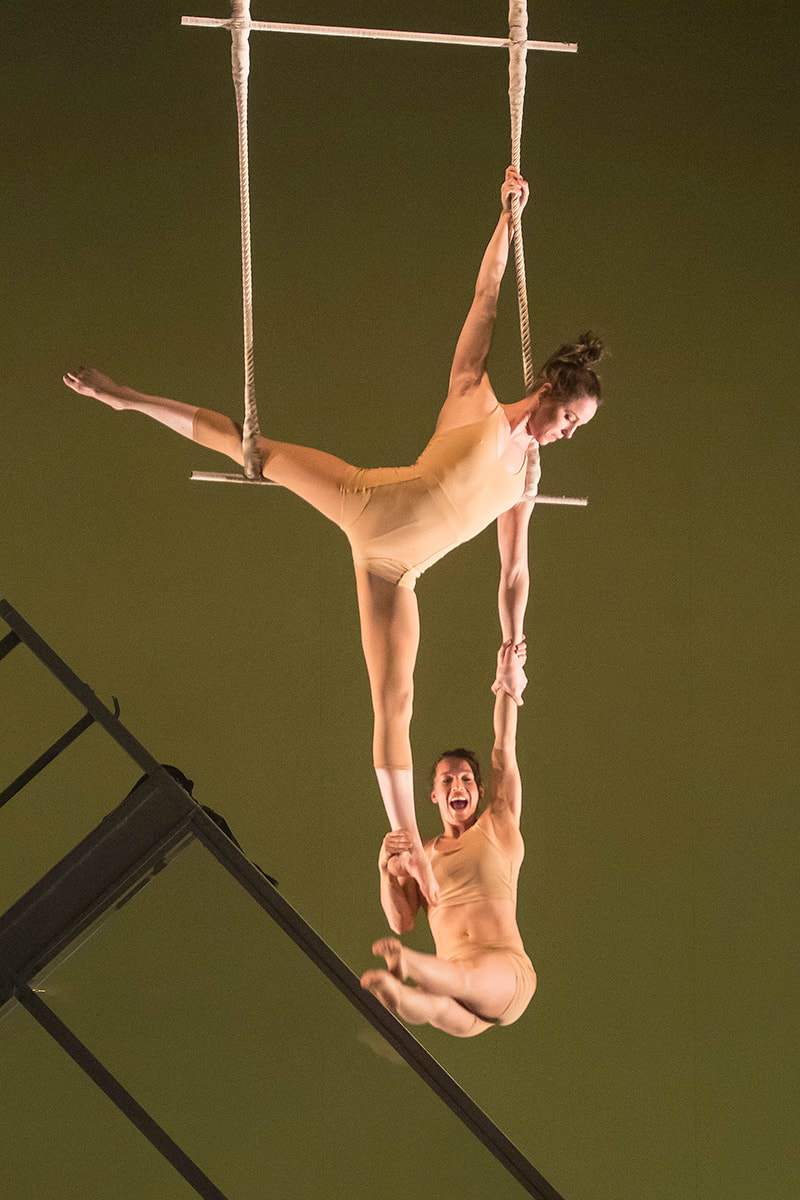Defining the MuseFlip Fabrique takes audiences on a high-flying journey of self-discovery.
WORDS Ninette Paloma
When contemporary circus company Flip Fabrique last performed in Santa Barbara, the world was a very different place. Their 2020 production – moody and dancing darkly around the edges of uncertainty – seemed to foreshadow the global phenomenon that would descend on our lives just a few weeks later.
Three years almost to the date, UCSB Arts & Lectures hosted the return of this beloved Quebecois troupe, and their performance at the Granada Theatre on February 5th gave audiences a dazzling view of how confidently they have emerged from such uncertain times. Muse – their latest production exploring the sometimes comical, sometimes damaging effects of gender archetypes – embraced all of the company’s signature charm and gravity-defying flare, and then cartwheeled beyond, adding a new and poignant layer of social reflection that was woven into each expertly choreographed act. The results? Hugo Duquette in a sensual trapeze solo wearing a skirt and heels or Évelyne Paquin-Lanthier and Anne-Marie Godin dressed in unassuming nudes performing a brute force hand-to-foot partnering piece with heart-pounding ease. For one dazzling hour, the seven multi-faceted artists danced, leapt, and sung in defiance of the taxing confines of gender roles, with voice-over interludes encouraging the audience to consider their own role in keeping up with appearances. Circus by nature is a disobedient discipline, requiring an artist to push roughly past perceived limitations both physical and mental to get to the starkly fresh space of possibility. That Flip Fabrique is evolving into a company keen on using these fundamental genre characteristics to explore layered and rich subject matter is what will no doubt propel them to new and great heights. Save me a seat, that is something worth showing up for time and again. |

